Pigs hit in face before ‘agonising’ CO2 death at supplier for Tesco, Asda, Aldi and M&S
A worker hit pigs in the face and on their backs with a paddle as they prepared to put them into gas chambers to die, secret filming has revealed.
The video, taken at a slaughterhouse supplying supermarkets Tesco, Morrisons, Asda, Sainsbury’s and Aldi, as well as Marks and Spencer, includes rare footage of pigs being suffocated by carbon dioxide (CO2) for up to a minute.
Many of the pigs were from farms endorsed by the RSPCA Assured scheme (meant to suggest higher welfare), and the pork packaging carried the RSPCA Assured logo.
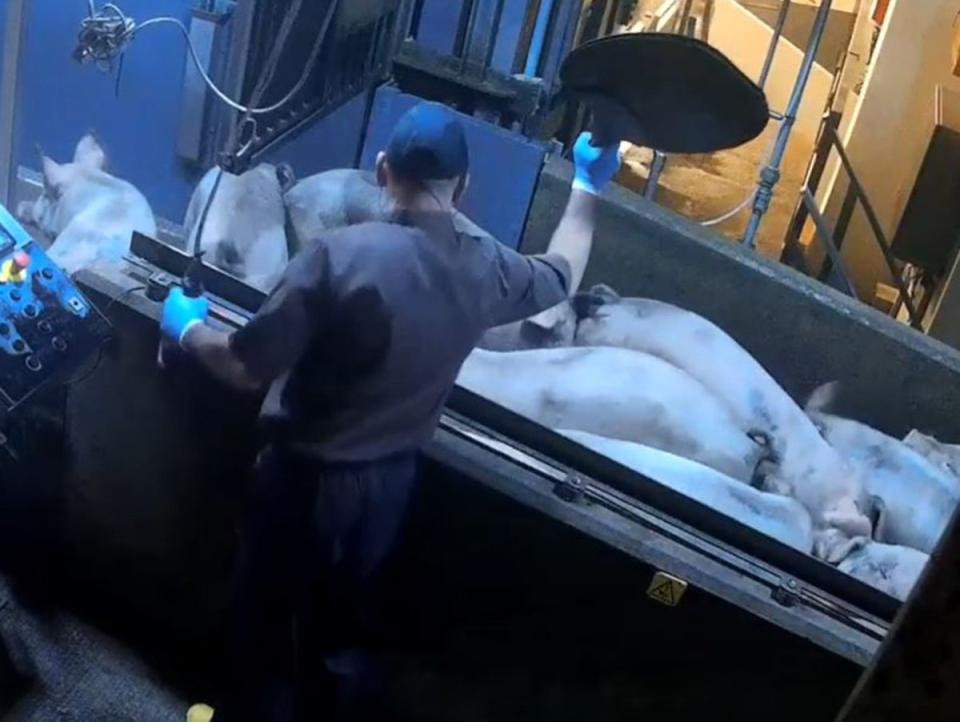
The clip was taken at an abattoir owned and run by Cranswick Country Foods in Watton, Norfolk, and was for a documentary called Pignorant, which aims to highlight how most pigs are killed in UK abattoirs using the gas, which animal-welfare activists say is excruciatingly cruel.
A number of the pigs were seen still moving after many minutes in the gas.
Cranswick did not respond to requests to comment but it’s understood most of the supermarkets involved contacted the company after seeing the footage.
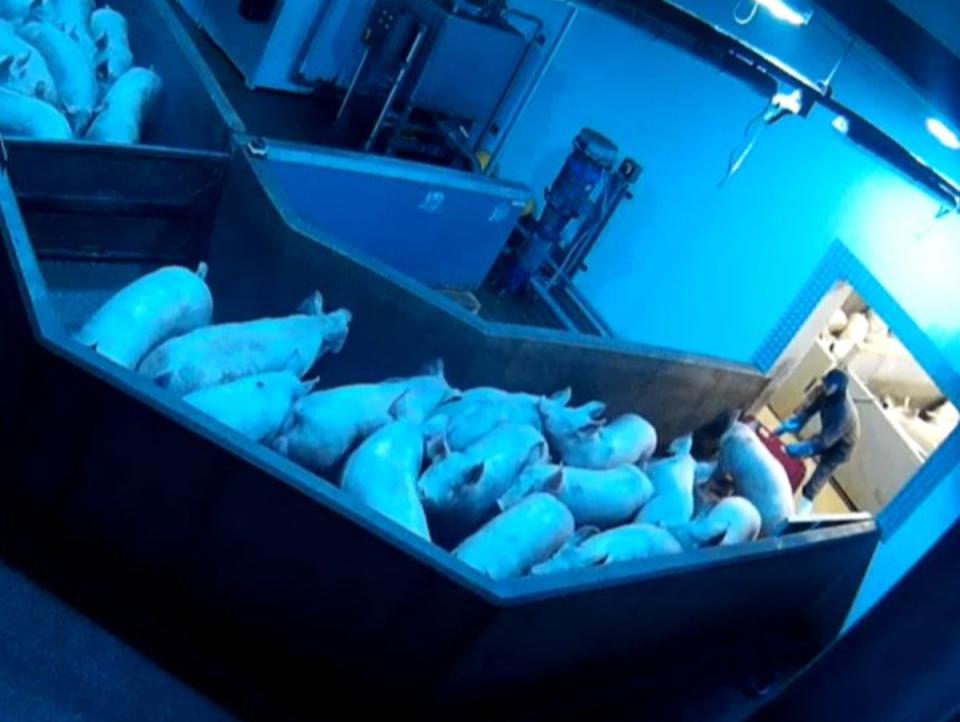
Activist Joey Carbstrong, the maker of Pignorant, said hitting pigs in the face was against government animal-welfare laws, and the animals were clearly frightened and writhing in agony as they were suffocated.
“Our latest investigation exposes the callous treatment of supposedly ‘high welfare’ pigs destined for supermarkets,” he said.
“If facing the horrors of a CO2 gas chamber wasn’t bad enough, the workers add insult to injury by hitting the pigs. Unfortunately this is inevitable in a system where animals are treated as commodities.
“Carbon dioxide is anything but a humane method of stunning and killing animals and causes severe pain and suffering.
“The public deserve to know what lies behind the facade of high-welfare labelling. Pigs are sensitive, curious, feeling beings; they deserve our respect.”
As long ago as 2003, the government’s own welfare advisers recommended that carbon dioxide killing be banned but the advice was never taken up.
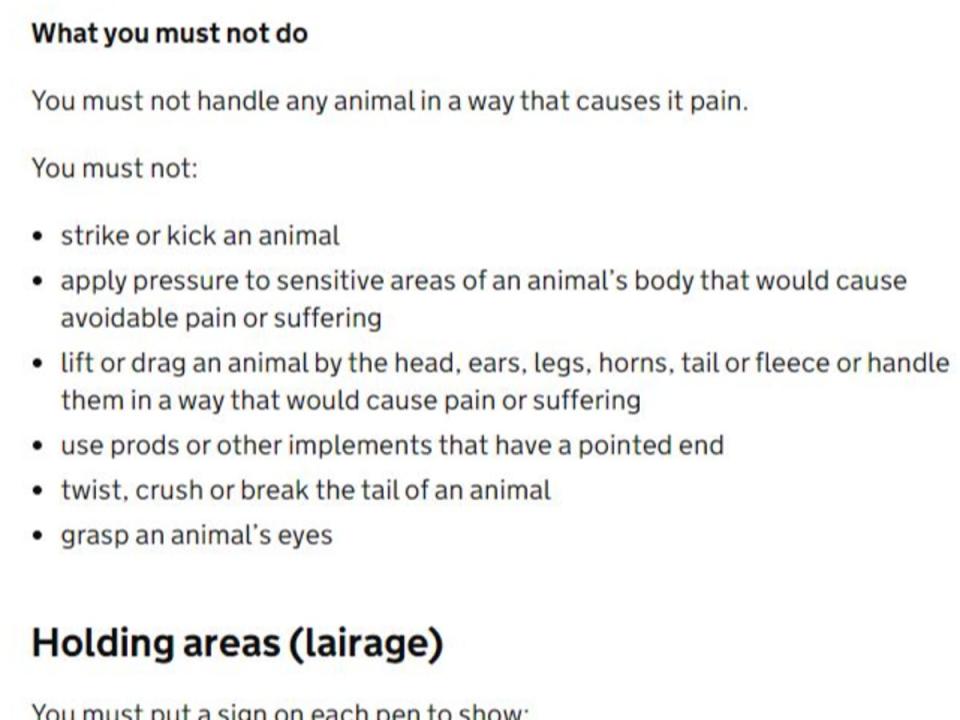
The following year the European Food Safety Authority also concluded that it was cruel and called for it to be phased out. Since then, both the RSPCA and Compassion in World Farming have repeatedly jointly called for alternatives to be used.
Mr Carbstrong said the meat industry claimed to use CO2 for welfare reasons but added that in his opinion the reason is that it’s more “cost effective”. In other words, he said, abattoirs can kill more animals in a shorter time than they could by stunning.
The British Meat Processors Association has previously admitted to The Independent that pigs find high concentrations of carbon dioxide “aversive” and said they “will try to avoid exposure to these”, adding: “In the case of gas killing using carbon dioxide, pigs are seen to exhibit strong reactions for a period of up to 30 seconds.”
A 2021 government review concluded: “There has been no willingness on the part of abattoirs to explore inert gas mixture stunning commercially because of extended dwell time and therefore reduced throughput.”
Official figures show around 88 per cent of pigs in the UK are stunned with high concentration CO2, and most of the rest are electrocuted with tongs to the head.
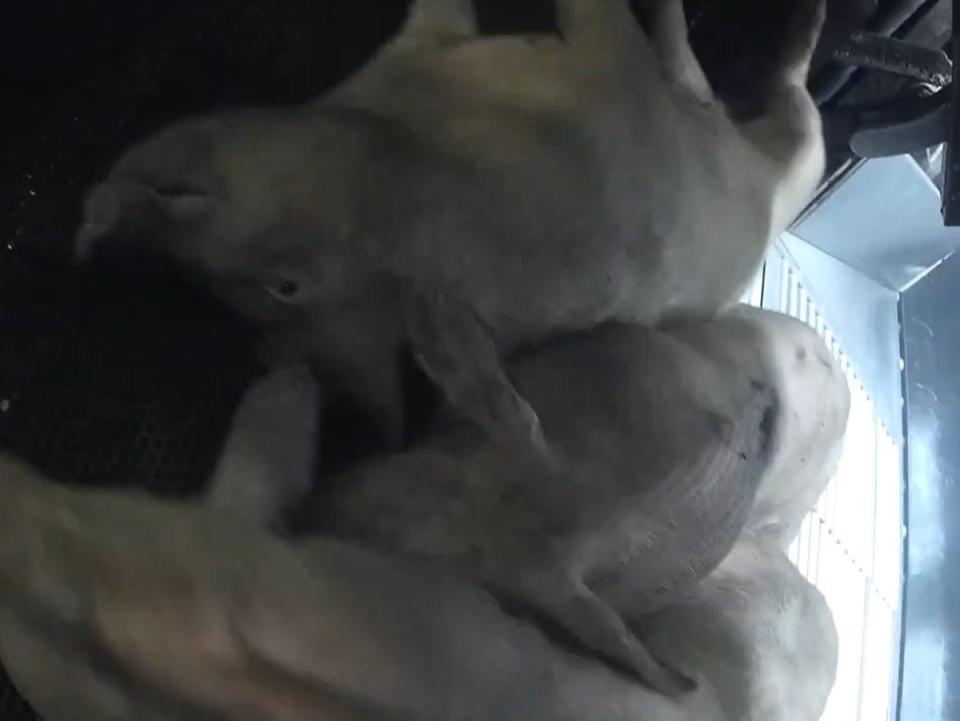
In January, The Independent revealed how two workers were sacked after pigs were beaten to death on a nearby free-range farm supplying Morrisons and Tesco. Cranswick took over the farm, and pigs from there were sent to this abattoir.
An RSPCA Assured spokesperson said hitting any animals was completely unacceptable, and that after seeing the footage it launched an immediate investigation and sent an assessor to ensure it did not happen again.
“Our experts have also carried out a detailed analysis of the footage to identify any breaches of the RSPCA welfare standards,” they said.
“We can’t currently make any further comment as our investigation is ongoing.
“Regarding concerns about the use of CO2 shown in the footage, the RSPCA’s welfare standards have strict requirements which help reduce the negative experience for the animals involved.
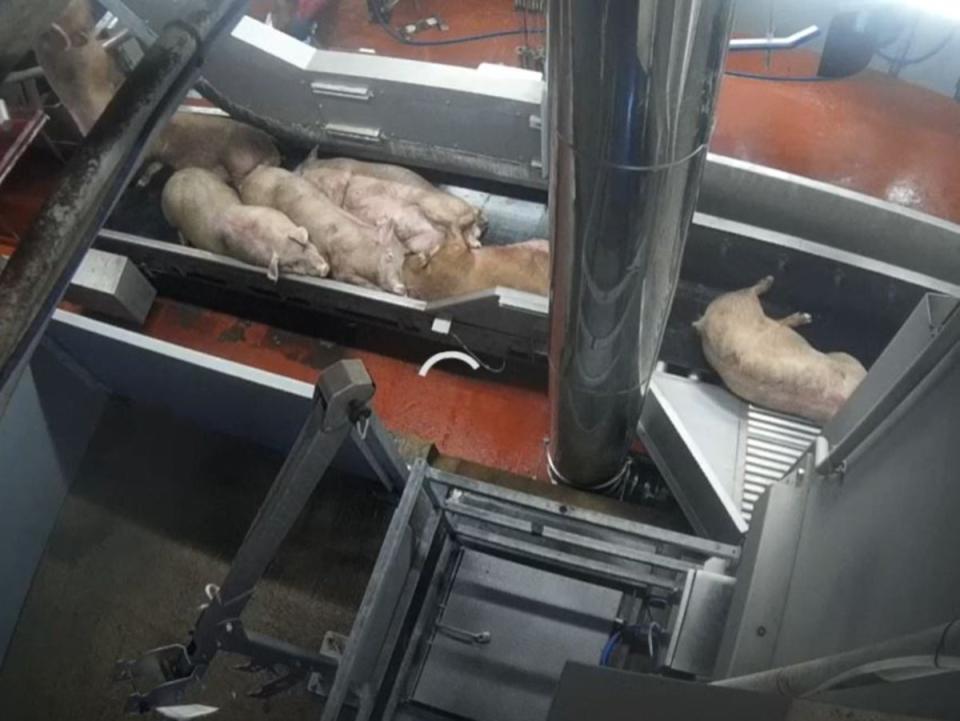
“However, alternatives to CO2 need to be developed as a matter of urgency and we urge the UK government to follow the EU’s lead to seek a phase-out by investing in research to find a more humane alternative as a priority.
“This footage highlights how difficult it is to think about the killing of animals farmed for food, and how critical it is that this process is as humane as possible.
“We’re working hard to improve the lives of farm animals by working with the food and farming industry to adopt higher welfare farming practices.”
Marks & Spencer, Sainsbury, Aldi and Morrisons – which is a Cranswick customer but does not buy from that abattoir – referred to comments from the British Retail Consortium, whose director of food and sustainability, Andrew Opie, said: “Our members take their responsibilities to animal welfare very seriously and are in touch with the supplier and the RSPCA about the steps they’re taking in response to these allegations.”
Asda was also approached for comment.


